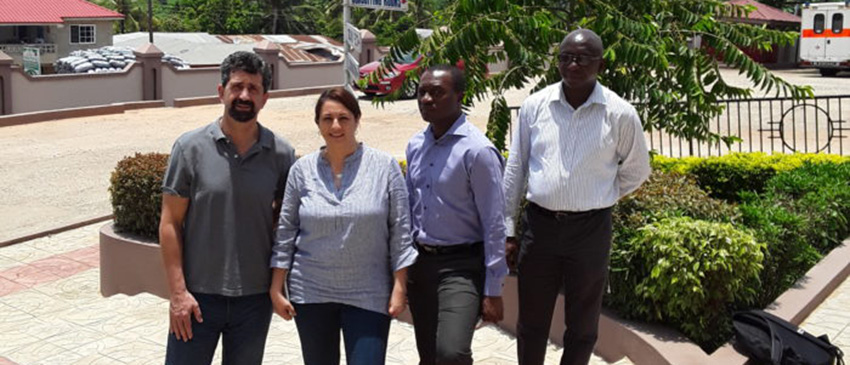
USAID SHOPS Supports Expansion Of Ghanaian Hospitals
Kenop Care, owned by Kenneth Opoku, consists of two hospitals in Ghana’s eastern region: Akyem Oda and Nkawkaw. The hospitals offer an array of services that are not easily accessible from other providers in the respective communities—including antenatal and maternal and child health. These hospitals are critical to the communities they serve as access to health services in the region is under-supplied. Residents often are forced to travel to other cities or forgo services and treatment.
Mr. Opoku developed a project that included infrastructure expansion to allow for an increase in capacity with a focus on delivering high-quality services. The project faced obstacles in acquiring financial resources, as banks were reluctant to lend to the health sector. Banyan Global works to expand lending to the health sector and supports the utilization of a Development Credit Authority guarantee to Fidelity Bank to stimulate lending. By working with Banyan Global on the Strengthening Health Outcomes through the Private Sector (SHOPS) Project and Fidelity Bank, Mr. Opoku was able to secure the financing required to complete the project.
As a result of the financing Mr. Opoku received, Kenop Care now has the capacity to attend to 16,000 patients, more than doubling its previous capacity. This investment also enabled Kenop Care to gain accreditation from the National Health Insurance Scheme, which led to increased access to health for a larger portion of the community.
“I am very grateful for the support the SHOPS project has given me. Without the support from SHOPS I would not have been able to keep my new hospital in operation.” – Mr. Kenneth Opoku, Kenop Care
